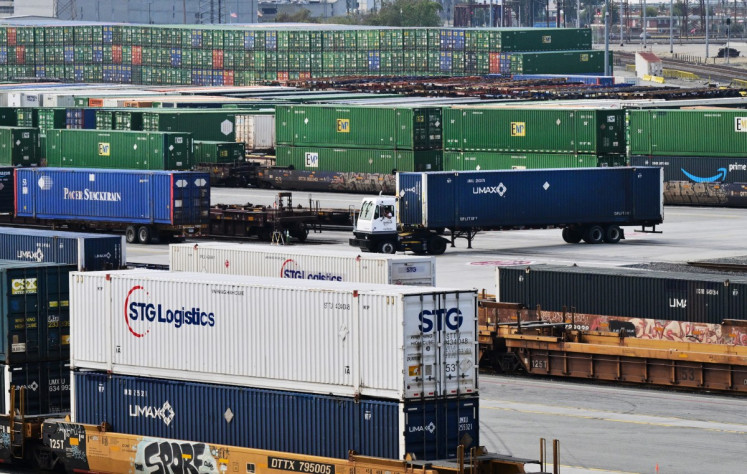Popular Reads
Top Results
Can't find what you're looking for?
View all search resultsPopular Reads
Top Results
Can't find what you're looking for?
View all search resultsMideast escalation could hurt Indonesia's economy
Brent crude has risen since violence broke out in Israel and Gaza but could surge far past $100 in case of further escalation.
Change text size
Gift Premium Articles
to Anyone
O
il prices have stabilized and the rupiah has regained some ground since the initial market reaction to the breakout of large-scale violence between Israel and Hamas, but further escalation could affect Indonesia’s economy, experts warn.
Global oil prices and the United Stated dollar surged soon after warfare erupted between the Israeli military and the Hamas militant organization earlier this week, prompting businesses in Indonesia to voice concern.
“The Middle East crisis directly impacts energy. If we must import and prices spike, it automatically disrupts Indonesia’s energy supply,” Indonesian Employers Association (Apindo) deputy chairman Bobby Gafur Umar told the media during an Apindo press conference in Jakarta on Wednesday.
The domestic oil requirement stood at 1.2 to 1.5 million barrels per day, far exceeding the country’s production of 600,000 barrels per day, noted Bobby, who is in charge of the manufacturing industry at the association.
Given Indonesia’s reliance on oil imports, Bobby explained, rising global prices would burden domestic industries with higher fuel costs and strain government finances.
Apindo chairwoman Shinta Kamdani pointed out at the same event that the Middle East conflict had an indirect effect on the rupiah.
“This [conflict weighs on the rupiah], and we’re already experiencing it today,” she said.



















